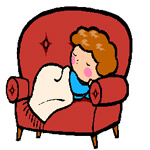
If your husband or wife’s snoring is driving you up a wall, think about what it might be doing to his or her health.
Snoring and obstructive sleep apnea, which affect 20 million Americans, have been linked to impaired ability to think, congestive heart failure, daytime sleepiness, sleepiness-related accidents, hypertension, irregular heartbeat and increased risk for strokes. Only 15 percent of these people have had their condition diagnosed. In rare cases, such as former professional football player Reggie White’s death in December 2004, sleep apnea has been suspected as a contributing factor. Sleep apnea causes sufferers to stop breathing again and again during sleep.
Now, researchers at the Health Science Center and the South Texas Veterans Health Care System, Audie Murphy Division, have established the new Center for Dental Sleep Medicine to research, diagnose and treat obstructive sleep apnea using the latest methods. Health Science Center collaborators are from the Dental School’s departments of dental diagnostic science, restorative dentistry, and oral and maxillofacial surgery, and the Medical School’s department of otolaryngology.
“We are committed to providing education, research and patient care based upon the latest scientific techniques in this field,” said David R. Senn, D.D.S., clinical assistant professor in the department of dental diagnostic science. Dr. Senn and Charles Giesey, D.D.S., clinical assistant professor of restorative dentistry, are co-directors of the center, and the third center faculty member is Richard B. Drake, D.D.S., clinical assistant professor of dental diagnostic science.
Both Drs. Senn and Giesey emphasize that the most-conservative, effective treatments will be applied at the center, and a multidisciplinary team of professionals will seek solutions to help patients who do not respond to conservative treatment. “We want to apply the latest diagnostic tools, and treat snoring and mild to moderate obstructive sleep apnea conservatively and effectively,” Dr. Senn said.
Research has shown that devices placed inside the mouth to advance the mandible and attached tissues during sleep are often effective for snoring that doesn’t involve obstructive sleep apnea. The most-common treatments for both conditions are surgery and a therapy called Continuous Positive Air Pressure (CPAP). Patients wear a mask connected to a pump for the CPAP therapy. “These treatments are not always effective or well tolerated by patients,” Dr. Giesey said. “In cases where CPAP is the preferred method of treatment, intraoral appliances used in conjunction may improve the efficacy of the treatment.”
Patients often undergo overnight sleep studies to get a diagnosis, but spending a night in a sleep clinic can cost as much as $2,000, which is difficult for some to afford. The Center for Dental Sleep Medicine will search for simpler, less-expensive, but effective, diagnostic procedures.
The public is invited to call the center at (210) 567-1759 or 567-3313 about an appointment for screening for sleep disorders. “People do die because of complications from severe sleep apnea. Our goal is to help prevent that, as well as to improve the quality of life for snorers and the people who love or tolerate them,” Dr. Senn said.

